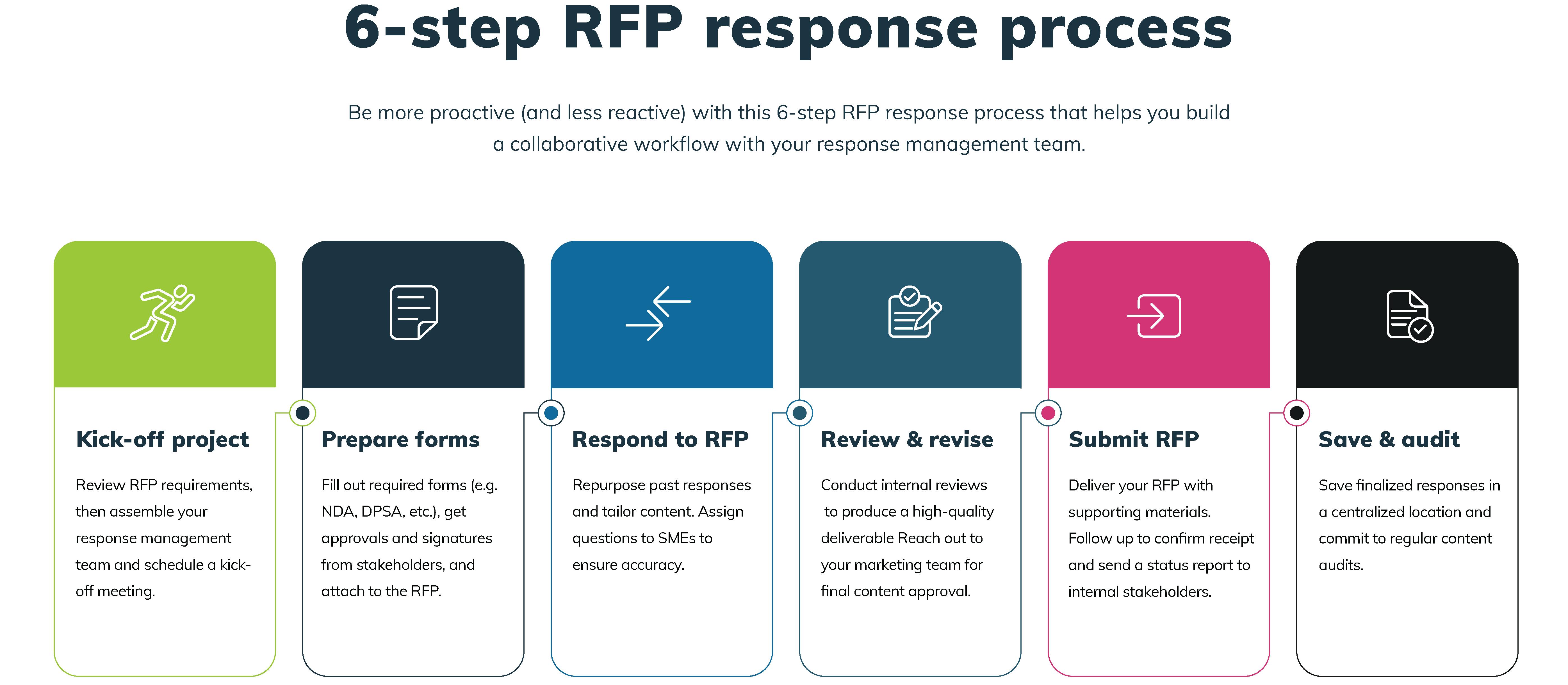Your expertise is in high demand. You act as the contributor, the project manager, the content creator—maybe all of the above. You’re a subject matter expert in the RFP response process and your expertise gives content substance.
Because RFP responses become part of a legal and binding contract if the bid is accepted, compliance is crucial. How do you stay compliant when collaborating on RFP responses? Learn all about RFP compliance below.
Subject matter experts, the co-owners of RFP compliance
“On good teams, coaches hold players accountable. On great teams, players hold players accountable.” Joe Dumars, an NBA Hall of Fame inductee, gives us something to think about, doesn’t he?
The best response management teams recognize that compliance is everyone’s responsibility. You, as the subject matter expert, need to see yourself as a co-owner of compliance. As long as you monitor RFP response content for accuracy before, during, and after an RFP project, approval should be fairly quick by the time an RFP reaches your compliance team.
You proactively contribute RFP responses, then manage that content through scheduled review cycles. Responses to your assigned questions must be precise, data-neutral, and internally compliant with current company policy. Additionally, responses must reflect your organizational values and be technically sound.
If you own the whole process of creating, maintaining, and auditing RFP responses, you create a robust Content Library for the whole team to utilize at any point during an RFP response project. By creating a culture of accountability, everyone can rely on each other for the right content at the right time.
Hold yourself accountable for RFP compliance in 4 steps
As a subject matter expert, your time is precious. Understanding your team’s RFP response review cycle and content audit approach are key time-savers. Knowing your chain of command and speaking up if you see problems with the process are equally important for efficiency.
Below are some suggested steps that will offer guidance as you hold yourself accountable for RFP compliance.
1. Create an RFP response process.
An effective team clearly defines its RFP response process workflow. Review cycles might change based on content needs, but individual steps and team responsibilities are all clearly defined. For example, you might have:
- Authors – Responsible for answering the question and curating that content. Usually, authors are subject matter experts.
- Reviewers – Responsible for the final content audit within the RFP project. Reviewers are also the final say for what content should be kept in the Content Library for future use. Reviewers are often proposal writers or on the marketing team.
- Project Managers – Responsible for ensuring the Author/ Reviewer workflow is set up correctly and followed. Project managers should have a clear depiction of the project management strategy set up by the RFP software admin users—and continually use this strategy to guide the RFP project.
2. Establish RFP content best practices.
A good RFP content management team makes sure content is up-to-date and data is neutralized. They schedule regular training for SMEs to keep systems running smoothly and aligned with organizational best practices.
3. Commit to RFP content accuracy.
Accurate content is the backbone of RFP compliance. SMEs (subject matter experts) should participate consistently in review cycles and content audits. The goal is to ensure absolute accuracy for optimum proposal compliance.
4. Keep up with review cycles.
SMEs are responsible for keeping up with the review cycle of all technical content that goes out the door, including content for security questionnaires and RFP responses. Review cycles can be conducted at any interval, depending on the timeline established during the RFP response process.

How RFPIO enables RFP response compliance
In the 2019 RFPIO Responder Survey, nearly half of subject matter experts indicated the main way RFPIO has helped them with their RFP responses was by enabling them to review content for quality and accuracy instead of writing repetitive responses. Let’s explore how RFPIO enables RFP response compliance through content review cycles and audits.
Review content for RFP compliance
Through the RFPIO platform, you are notified by email when your oversight is needed with RFP response content. You simply log in, review assigned questions or sections, and check for RFP compliance with current company policies and data neutrality.
Compliance teams strengthen their impact on RFP response success by utilizing sequential reviewers. A project manager, team leader, or proposal manager will be the first set of eyes on all the content. Then you come in and review that piece for internal compliance with things like terminology and company values.
Audit content for RFP compliance
By conducting regular content audits in RFPIO’s proposal management software, you help to create a robust Content Library of accurate, compliant content which is easily accessible at any point in the RFP response process. The more the Content Library is optimized, the stronger this knowledge repository becomes.
Another useful feature is the Answer Type Template, a customizable answer type that can be aligned with specific compliance pieces. Think of the Answer Type Template as your SME content auditing checklist. Data from these answers can be exported and manipulated into reports to efficiently target any compliance issues that need attention.
Fostering a culture of accountability with RFP compliance empowers your team to succeed. You’ll help protect your organization against liability and decrease RFP response completion time. When you take responsibility for compliance, you contribute to a winning team.
